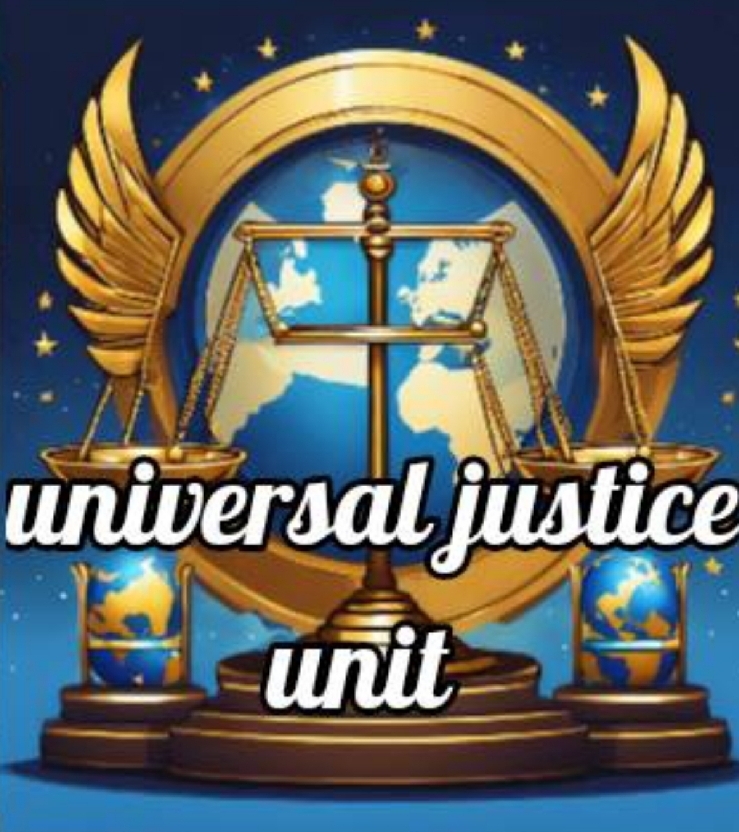Введите текст статьи
The breach act of Azerbejan's sea veseles the territorial water of Eritrea
November 7.2024 an Azerbaijani vessel violated the territorial waters of the state of Eritrea for unknown reasons stil remain detained and investigation continues.
The legitimate right of the Eritrean government to act based on The national and international of marinlaw.
Negotiations in Vienna regarding breaches of maritime territory may address various aspects, such as boundary definitions, fishing rights, environmental protection, and adherence to international norms. Participants typically strive to find compromise solutions to avoid conflicts and ensure stability in the region. These negotiations may include representatives from several countries and organizations, as well as experts in international law and marine environmental protection.
In international maritime law, issues related to the confiscation of vessels may be linked to several key documents. The main one is the United Nations Convention on the Law of the Sea of 1982.Article 73 of this convention addresses the rights of states regarding the detention and confiscation of vessels in the exclusive economic zone. It should also be noted that international norms and laws may vary, and each state may have its own laws and regulations concerning the confiscation of vessels.Other documents, such as the Convention for the Suppression of Unlawful Acts Against the Safety of Maritime Navigation, may also contain provisions regarding the rights and obligations of states concerning confiscation.
ASMERA cONFERENCE 4-6 OF JANUARY 2025
The annual conference in Asmara, Eritrea, should focuses on essential themes regarding the country's future growth in modern times. One of the primary agendas is the rule of law, which is crucial to the strategic approach for social, economic, and political development. Recognizing the vital role that the rule of law plays in any government, conference participants must diligently assess its value and commit to thorough research on this topic.Here are several key ideas that can guide the discussions:1. Establishing Principles: Even without a formal constitution, Eritrea can engage in discussions about fundamental principles of the rule of law, such as fairness, accountability, and transparency. These discussions will help identify the core values that should underpin governance and legal processes.2. Informal Structures: Many societies operate under customary laws or informal legal systems. The conference can explore how these systems function and their relevance in upholding justice. Research into anthropological rules is particularly significant for our multicultural society.
article;ANUAL ASMERA CONFERENCE,JANUARY 4-6 2025
G.Mekonnen Zeray.
18:17 The annual conference in Asmara, Eritrea, should focuses on essential themes regarding the country's future growth in modern times. One of the primary agendas is the rule of law, which is crucial to the strategic approach for social, economic, and political development. Recognizing the vital role that the rule of law plays in any government, conference participants must diligently assess its value and commit to thorough research on this topic.Here are several key ideas that can guide the discussions:1. Establishing Principles: Even without a formal constitution, Eritrea can engage in discussions about fundamental principles of the rule of law, such as fairness, accountability, and transparency. These discussions will help identify the core values that should underpin governance and legal processes.2. Informal Structures: Many societies operate under customary laws or informal legal systems. The conference can explore how these systems function and their relevance in upholding justice. Research into anthropological rules is particularly significant for our multicultural society. The anthropological rule encompasses principles and guidelines that researchers adhere to when engaging with communities. Its importance lies in fostering a deeper understanding of diverse cultures while ensuring ethical conduct in research. Significance of Anthropological Rules - Cultural Sensitivity**: Promotes respect for diverse cultures and prevents ethnocentrism. - Ethical Standards Establishes guidelines for conducting research, ensuring informed consent and participant well-being. - Holistic Understanding Encourages a comprehensive view of human behavior by considering historical, social, and environmental contexts. - Community Engagement: Fosters collaboration with local communities, leading to relevant and impactful research outcomes. - Data Integrity: Ensures that collected data is accurate and representative of the studied populations. Methods of Implementation: - Participant Observation: Engaging directly with communities to gain insights and build trust. - Interviews and Surveys: Conducting structured or unstructured interviews to gather qualitative and quantitative data. - Collaboration with Local Researchers: Partnering with local scholars or leaders to enhance cultural relevance and research quality. - Ethical Review Processes: Submitting research proposals for ethics committee review to ensure compliance with standards. - Feedback Mechanisms: Allowing community members to review findings to ensure their perspectives are included.3. International Standards The conference can benefit from discussions about international human rights standards, providing guidance on establishing the rule of law even in the absence of a domestic constitution.4. Civil Society Engagement Involving civil society, community leaders, and grassroots organizations can provide insights into local needs and aspirations for justice and governance, shaping discussions around formal legal structures.5. Challenges and Opportunities: Addressing unique challenges faced by Eritrea, such as political instability, lack of legal infrastructure, and human rights issues, can open pathways toward building a more equitable society.6. Comparative Analysis: Examining case studies from other nations that transitioned from informal legal frameworks to systems that uphold the rule of law can offer valuable lessons.7. Vision for the Future: The conference can focus on envisioning a legal framework that reflects the values and aspirations of the population, laying the groundwork for future constitutional development.In summary, while the absence of a formal constitution presents challenges, it does not preclude meaningful discussions about the rule of law and justice. Such conferences can serve as platforms for exploring foundational concepts, engaging stakeholders, and fostering dialogue about the future of governance and legal systems in Eritrea.The topics of rule of law and justice are critical in any conference, particularly in the context of governance, human rights, and societal development. Here are some key areas of focus:1. Definition and Importance: The rule of law signifies that all individuals and institutions are accountable to the law, which must be applied and enforced fairly. This principle is essential for maintaining order, protecting rights, and ensuring justice.2. Access to Justice* Discussions may explore the accessibility of legal systems for the general population, particularly marginalized groups, examining legal aid services, court accessibility, and public awareness of legal rights.3. Judicial Independence Emphasizing the importance of an independent judiciary free from political influence is crucial for upholding the rule of law. The conference can address challenges faced by judges and courts in maintaining impartiality.4. Human Rights: The relationship between the rule of law and human rights is vital. Topics may include protecting civil liberties, prohibiting torture and arbitrary detention, and safeguarding freedom of expression.5. Anti-Corruption Measures Corruption undermines the rule of law. The agenda can include strategies for promoting transparency, accountability, and good governance.6. International Standards The conference could discuss how local laws align with international human rights standards and the role of international organizations in promoting the rule of law.7. Community Engagement: Involving communities in discussions about their legal rights and responsibilities can strengthen the rule of law at the grassroots level.8. Case Studies: Presenting examples from other countries where the rule of law has been successfully implemented or challenged can provide valuable insights.These aspects create a comprehensive framework for discussions around the rule of law and justice, fostering a deeper understanding of the challenges and opportunities in these areas. Finally, research and discussions about the rule of law in Eritrea should not be confined to the conference scheduled for January 2025; it should be an ongoing agenda for Eritrean professionals in their daily legal practices. It is hoped that the Eritrean government will implement and put into practice the values outlined above for the sake of stability, unity, and sustainable growt
STAY TUN AND FOLLOW THE DEVELOPMENT OF THE POLITICAL SITUATION IN ETHIOPIA
 አብ እዲስ አበባ ንዝነብሩ እርትራዊያንBy Mekonnen ZG. Analytic room
አብ እዲስ አበባ ንዝነብሩ እርትራዊያንBy Mekonnen ZG. Analytic room
October 15, 2024
Analysis of Political Trends in Ethiopia and Their Impact on Eritrean MigrantsIntroduction Ethiopia, situated in the eastern region of Africa, has undergone significant political transformations in recent years. These developments affect a variety of demographic groups, particularly Eritrean migrants who are seeking asylum and improved living conditions within Ethiopia. This report aims to explore the prevailing political trends in Ethiopia and their repercussions for Eritrean nationals. 1. Political Developments in Ethiopia Since 2018, Ethiopia has entered a phase of political reforms introduced by Prime Minister Abiy Ahmed. His administration's initiatives focus on enhancing democratic practices, fostering economic growth, and strengthening ties with neighboring nations, including Eritrea. However, these reforms have also led to internal strife and ethnic tensions, resulting in a climate of instability. Key Elements of Political Developments: -Ethnic Tensions: Escalating conflicts among various ethnic groups have led to violence, breaches of fundamental human rights, and threats to the safety of migrants. -Relations with Eritrea: The normalization of diplomatic relations following a prolonged conflict has opened avenues for collaboration, though practical implementation remains challenging. 2. Implications for Eritrean Migrants Eritrean migrants residing in Ethiopia face numerous challenges amid the current political climate: - Living Conditions: Many migrants encounter obstacles in accessing essential services like healthcare and education due to ongoing instability and a lack of resources. -Legal Ambiguity: Shifts in legislation may influence the legal status of migrants, posing risks of deportation or limitations on their fundamental rights. - Social Integration: Ethnic conflicts may result in the marginalization of migrants, hindering their ability to assimilate into society. Introduction Eritrean nationals currently in Ethiopia must pay close attention to the ongoing ethnic conflicts and take necessary precautions to avoid a recurrence of the tragic events witnessed during the administration of Prime Minister Meles Zenawi. It is crucial to remember historical lessons and remain prepared for potential shifts in the political environment. Historical Context During Meles Zenawi's tenure (1995-2012), there were severe persecutions against Eritrean citizens in Ethiopia, leading to widespread repression and violence. These incidents have left a lasting impact on those who lived through them, emphasizing the importance of preventing similar occurrences in the future. Current Situation At present, Ethiopia is facing increased ethnic strife, raising concerns among various demographic groups, including Eritrean citizens. Conflicts between ethnic factions could exacerbate the situation for vulnerable populations, particularly those already in refugee camps or residing in border regions. Recommendations for Eritrean Citizens Conclusion: In light of the escalating tensions related to ethnic conflicts in Ethiopia, Eritrean citizens residing in the country should prepare themselves for potential challenges. Here are several steps they can take: 1. Document Preparation -Personal Identification: Identity cards, passports, and birth certificates. - Financial Records: Bank statements, property deeds, contracts, and bills. - Property Ownership Documentation: Proof of ownership for real estate and other assets. 2. Establishing a Contingency Plan - Safe Evacuation Routes: Identify possible paths for safely exiting the country.
The histry of jurisprudence
 jurisprudenceElements of jurisprudence arose as legislation and legal sciences developed; some information about law was included in the general education system in ancient times. Initially, they accompanied religious studies and philosophy. For example, in India, the law of the Brahmins was associated with the religious cult and was twisted along with it. In Israel, legal regulations were compiled according to the Laws of Moses. In Ancient Greece and the Qing dynasties taught judicial eloquence. Gradually, prudence became an independent academic discipline in relation to. In Ancient Rama, one can assert the existence of a certain system of premesoto obrazhvane. Initially, knowledge of the practice in Ancient Rama was based on the theme of meliss applications of practice. The race of the philosopher Savet Pantonius wrote that in 254 BC, Tiberius Coruncanius publicly propodianos law. The first private pridicheskoe sje, ode chelakilitsia teachings, gave answers to questions and conducted treputas with students, was prozanoskanom Sabin in the 1st century z (Moscow ikka sabinari was okui different Kapelon). Such kovestna tsesna progullitsia
jurisprudenceElements of jurisprudence arose as legislation and legal sciences developed; some information about law was included in the general education system in ancient times. Initially, they accompanied religious studies and philosophy. For example, in India, the law of the Brahmins was associated with the religious cult and was twisted along with it. In Israel, legal regulations were compiled according to the Laws of Moses. In Ancient Greece and the Qing dynasties taught judicial eloquence. Gradually, prudence became an independent academic discipline in relation to. In Ancient Rama, one can assert the existence of a certain system of premesoto obrazhvane. Initially, knowledge of the practice in Ancient Rama was based on the theme of meliss applications of practice. The race of the philosopher Savet Pantonius wrote that in 254 BC, Tiberius Coruncanius publicly propodianos law. The first private pridicheskoe sje, ode chelakilitsia teachings, gave answers to questions and conducted treputas with students, was prozanoskanom Sabin in the 1st century z (Moscow ikka sabinari was okui different Kapelon). Such kovestna tsesna progullitsia

